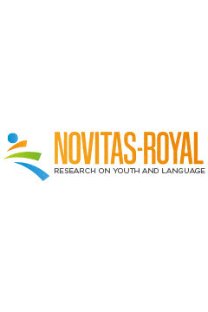The re-articulation of Hope from griff: Nigerian civil war poetry as ledger
Bu çalışma Nijerya iç savaşı sürecinde şiir yazınını tekrar çalışarak savaşın Nijaryalıları sürüklediği felaketi ön plana çıkarmak ve genç, savaşı deneyimlememiş nesli sosyo-politik krizleri şiddet yoluyla çözümleme tehlikesine karşı uyarmayı amaçlamaktadır. Bu amaçla, makale savaşa doğrudan dahil olmuş askerler, savaşı uzaktan veya yakından deneyimlemiş sivil bireyler ve savaştan 20 yıl sonra savaşa dair yazan şairler tarafından yazılan şiirleri incelemektedir. Kontrapuntal okuma aracılığıyla, Nijerya iç savaşı şiiri savaş süresinde ve sonrasında bir ulusun kolektif kaderinin hayatta kalma gücü ve bireysel bütünlük konusuna geleneksel yaklaşımlarda kalıcı bir şekilde yaralı bir toplumun belgelenmesini gözler önüne sermektedir. Bu makaleye teorik bir temel oluşturabilmek için Nijerya iç savaşına dair tanıklıkların tarihi bir gerçekliğe dönüşmesi sebebiyle, savaş hikayesinin Nijeryalılar için stratejik önem taşımaya devam edeceği düşüncesini tartışmaktayım.
This paper attempts to re-examine the poetry of the Nigerian civil war to bring to the foreground the disasters it brought upon Nigerians and to caution the generation who did not experience the war, especially the youths on the dangers of resolving socio-political crisis through violence even if some crisis cannot be resolved without one. Invariably, the essay examines poetry written by soldiers who were directly involved in the war, civilians who experienced the war closely or remotely and poets who wrote two decades after the war. From a contrapuntal reading, the poetry of the Nigerian civil war becomes a documentation of hope for a wounded society because of the substantive way it dealt with the traditional themes of the integrity of the individual or the viability of the nation’s collective destiny during and after the war. To give the paper its theoretical base, I argue that since the testimony of the Nigerian Civil War has translated into an historical reality, the war story will continue be of strategic importance for Nigerians.
___
Achebe, Chinua.1972. Beware Soul Brothers: Poems. Enugu: Nwamife.Achebe, Chinua. 1977. Morning Yet on Creation Day. London: Heinemann.
Acholonu, Catherine. 1985. Nigeria in the Year 1999. Owerri: Totan.
Aiyejina, Funso. 1988. “Recent Nigerian Poetry in English: An Alternative Tradition”. In Perspectives on Nigerian Literature, Ed. Yemi Ogunbiyi. Vol. I, Lagos: Guardian Books Ltd. 112 - 128.
Amuta, Chidi. 1988. “Literature of the Nigeria Civil War”. In Perspectives on Nigerian Literature Ed. Yemi Ogunbiyi. Vol. I, Lagos: Guardian Books Ltd. 85 - 92.
Asein, Samuel. 1978. “Literature as History: Crisis, Violence, and Strategies of Commitment in Nigerian Writing”. In Literature and Modern West African Culture, Ed. D.I Nwoga. Benin City: Ethiope Publishing Corporation. 97-116
Azuonye, Chukwuma. 1972. Ed. Nsukka Harvest. Nsukka: Odunke Publications.
Bali Domcat. 1984. War Cries. Lagos: Civilities Ltd.
Chinweizu. 1977 . Energy Crisis and other Poems. New York: Nok.
Clark, J. P. 1981 . A Decade of Tongues. London: Longman.
Ehrhart, W. D. 1993. The Distance We Travel. Easthampton, MA: Adastra Press.
Ezenwa-Ohaeto. 1988. “Pol Ndu”. In Perspectives on Nigeria Literature. Ed. Yemi Ogunbiyi Vol. 2, Lagos: Guardian Books Ltd. 250 - 255.
Foulkes, A. P. 1983. Literature and Propaganda. London: Methuen.
Garuba, Harry. 1988. “Odia Ofeimun and Femi Fatoba” In Perspectives on Nigeria Literature Ed. Yemi Ogunbiyi Vol. 2, Lagos: Guardian Books Ltd. 269 - 276
Giroux, Henry. 1995. ‘‘National Identity and the Politics of Multiculturalism’’. http://www.sil.org/radneyr/humanities/politics/NatIdent.html.
Johnson, Alex. 1980. “Sunset at Dawn: A Biafran on the Nigerian Civil War” African Literature Today. Vol. II. 1980. 149 - 160.
Maduakor, Obi. 1982. “On the Poetry of War: Yeasts and J. P. Clark” Comparative Approaches to Modern African Literature Ed, Sam Asein. Ibadan: Ibadan University Press. 94-103
Maduakor, Obi. 1986. “Violence as Poetic Focus: Nigerian Poetry and the Biafran Experience”. Nsukka Studies on African Literature 4,(January).
Ndu, Pol. 1974. Songs for Seers. New York: Nok.
Nwachukwu-Agbada, J. O. J. 1997. “Songs from Thunder: Nigerian War Poetry” A Harvest from Tragedy: Critical Perspectives on Nigerian Civil War Literature. Ed Chinyere Nwahunaya, Owerri: Springfield Publishers. 141 - 165.
Ofeimun, Odia. 1980. The Poet Lied, London: Longman.
Ogede, Ode. 2000. “Exile and the female imagination: The Nigeria Civil War, Western Ideology (Feminism) and the Poetry of Catherine Acholonu” Ed. Durosimi. Jones, Exile and African Literature. 90-99.
Okara, Gabriel. 1978. The Fisherman’s Invocation. Benin City: Ethiope.
Okigbo, Christopher. 1971. Labyrinths. London: Heinemann.
Owens, Wilfred. 1965. “Preface”, Ed. C. Day Lewis, The Collected Poems of Wilfred Owens. New York: New Directions.
Reuter, Yves. 1992. Introduction à l’analyse du roman. Paris: Bordas. Ritterbusch, Dale. 1986. “Lessons Learned and Unlearned: The Aftermath Poetry of the War” Ed. Robert M. Slabey, The United States and Vietnam from War to Peace: Papers from an Interdisciplinary Conference on Reconciliation. Jefferson, NC: McFarland & Company. 139- 149.
Saro-Wiwa, Ken. 1985. Songs in a Time of War. Port Harcourt: Saros International Publishers.
Soyinka, Wole. 1999. The Burden of Memory, the Muse of Forgiveness. Oxford: Oxford University Press.
Vatsa, Mamman (ed). 1978. Voices from the Trench. Enugu: Fourth Dimension.
- ISSN: 1307-4733
- Yayın Aralığı: Yıllık
- Başlangıç: 2007
- Yayıncı: -
Sayıdaki Diğer Makaleler
"Kuki ga yomenai": Situated face-threatening act within Japanese social interaction
The re-articulation of Hope from griff: Nigerian civil war poetry as ledger
Investigating higher education seminar talk
Types and functions of repetitions in the narrations of Turkish sperkers of French
BİLAL GENÇ, MUSTAFA MAVAŞOĞLU, ERDOĞAN BADA
The frequency of culture-specific elements in the ELT coursebooks at elementary schools in Turkey
Z. Canan KARABABA, Işıl SERBES, A. Fulya ŞAHİN
English education at university level: Who is at the centre of the learning process?
Exploring the language of poems: A stylistic study
Using educational technology tools to improve language and communication skills of ESL students
